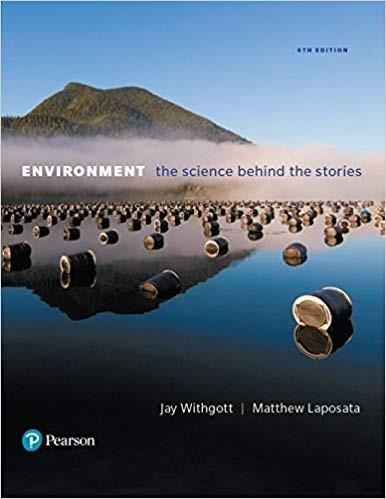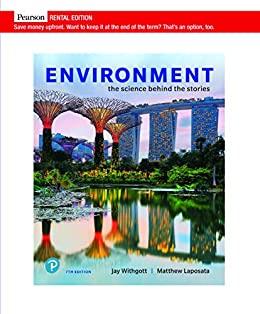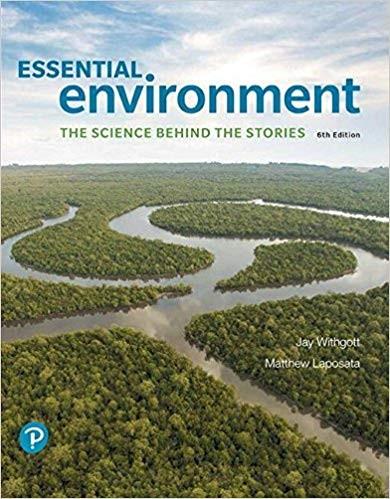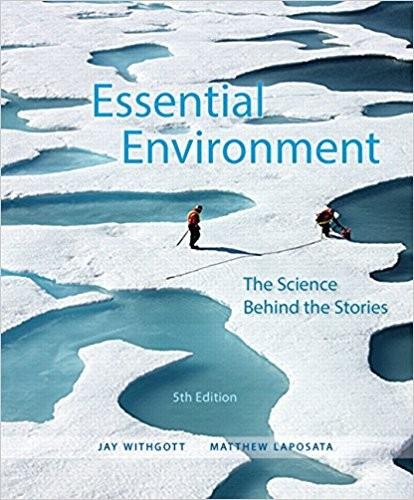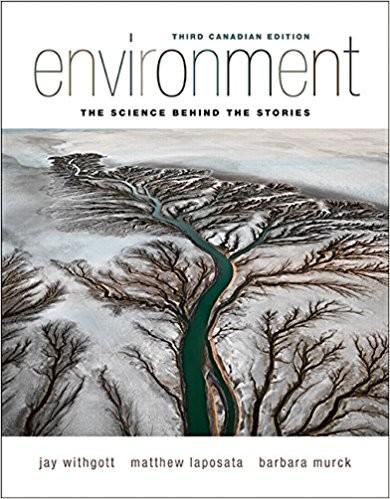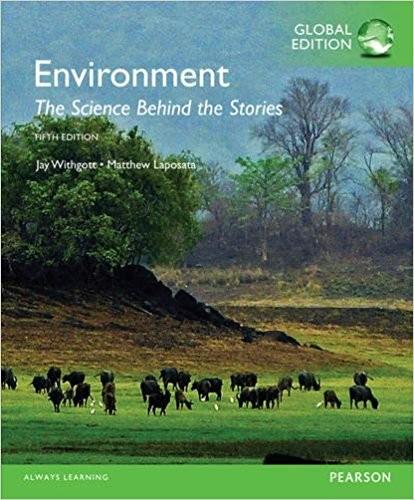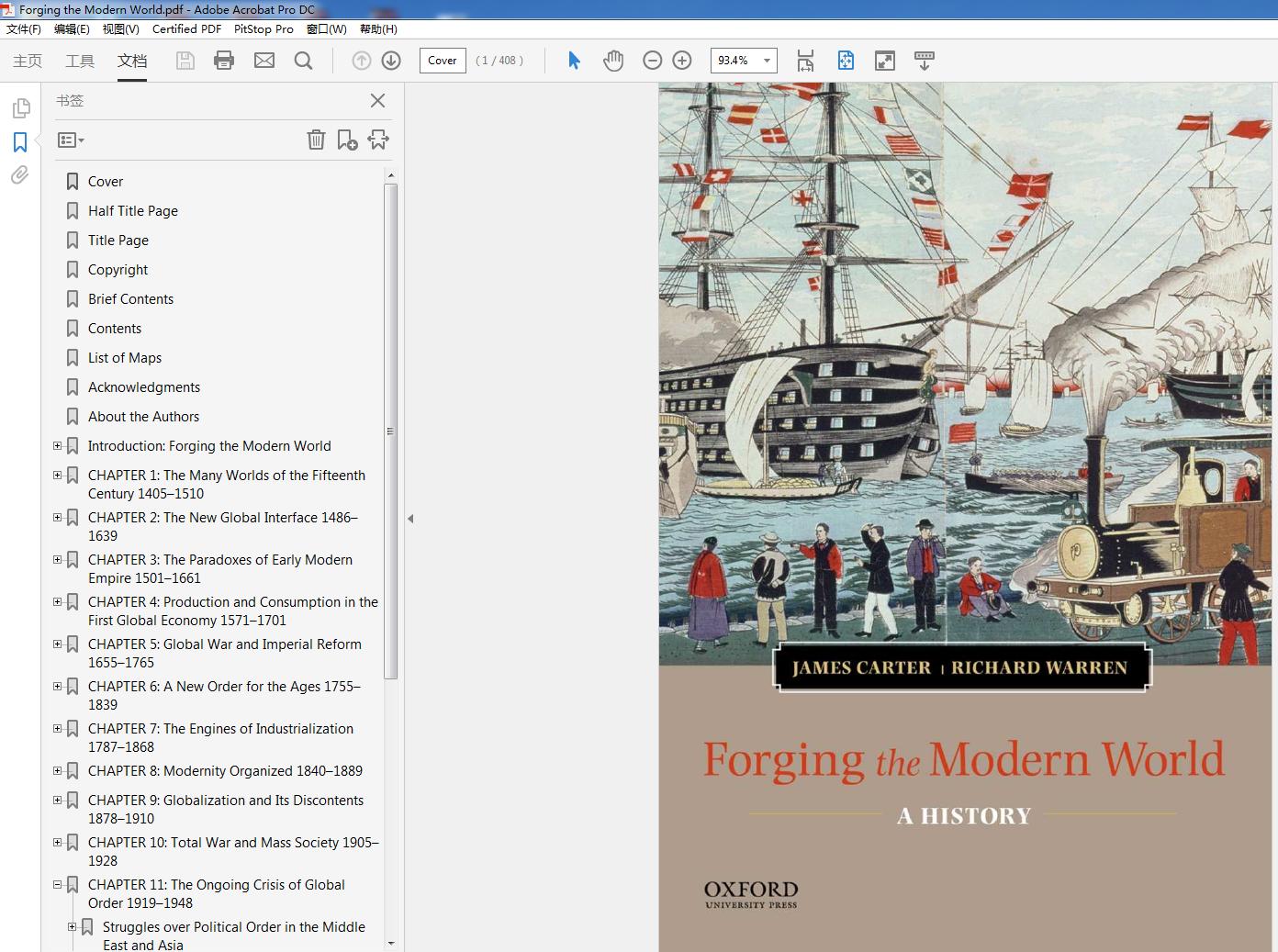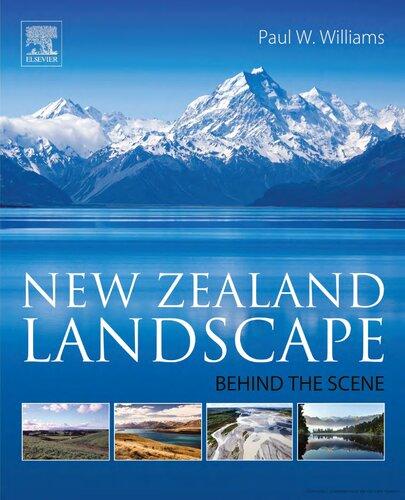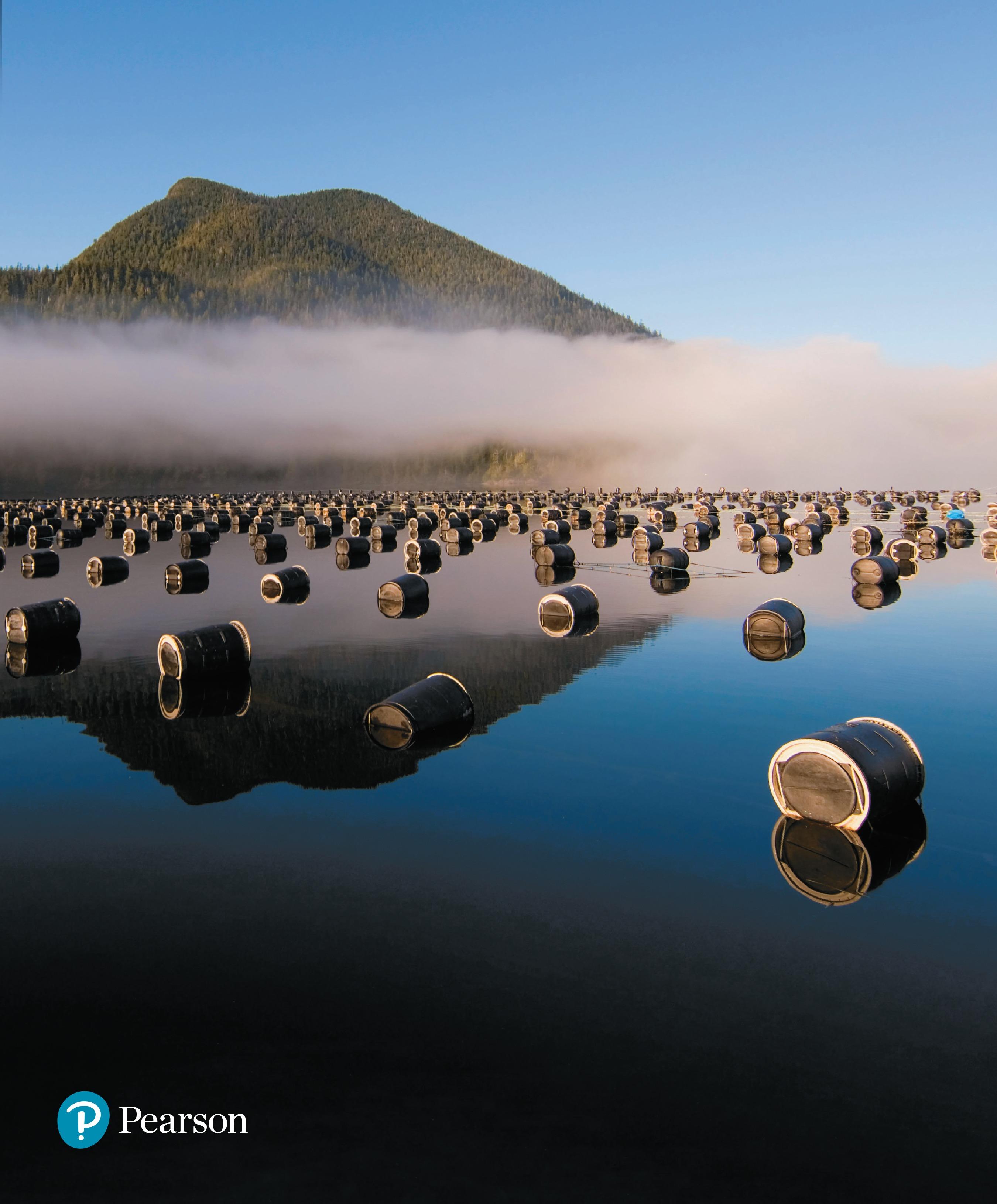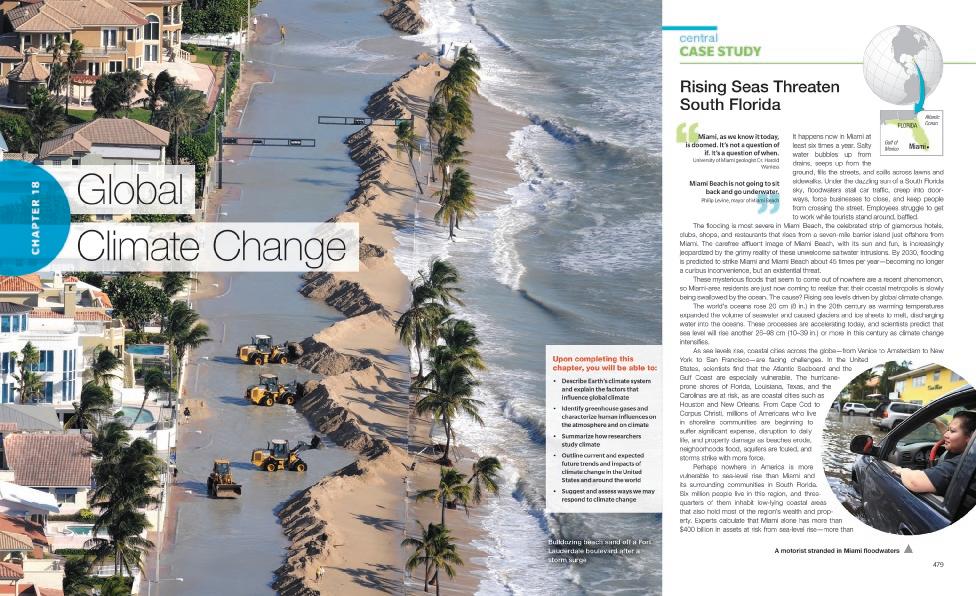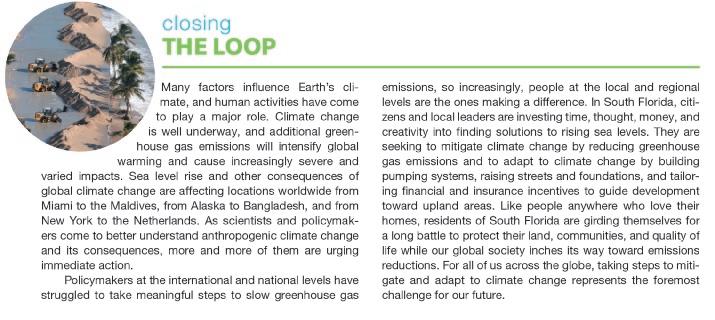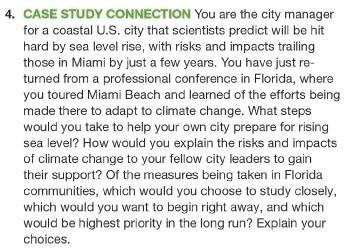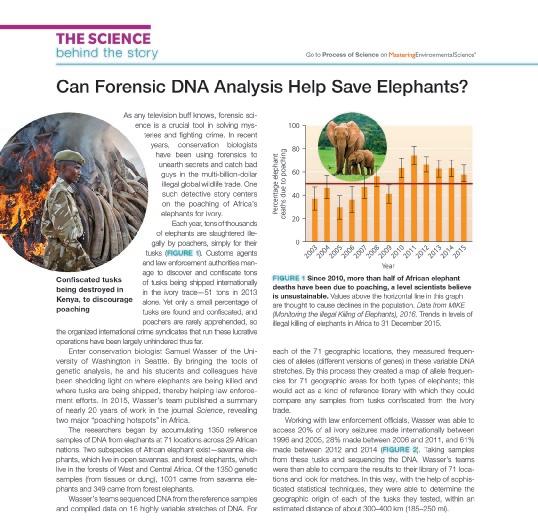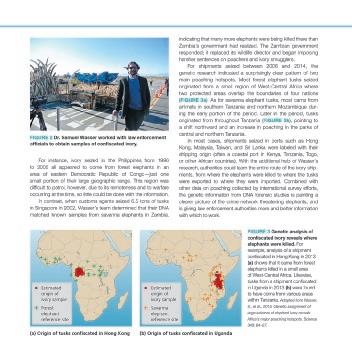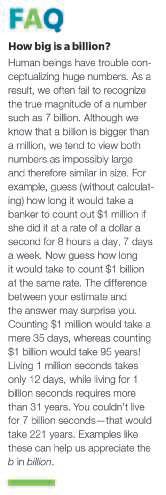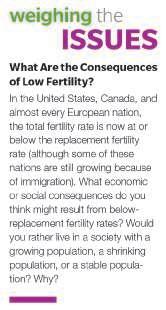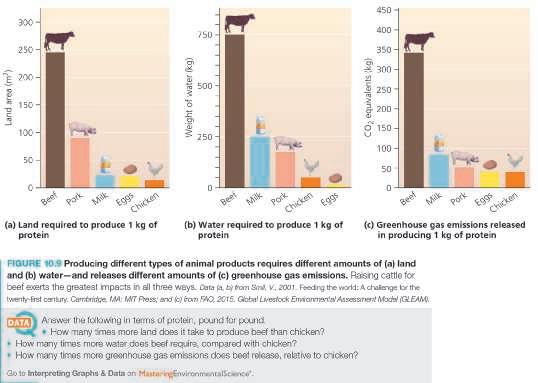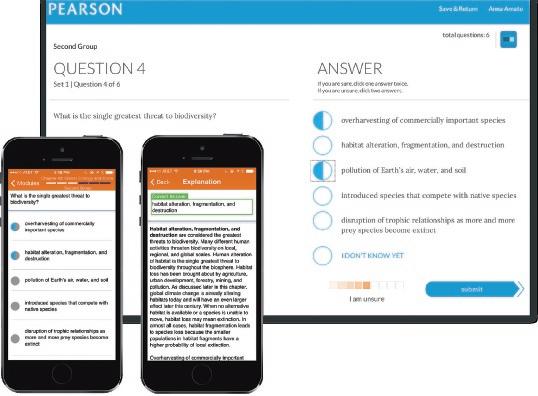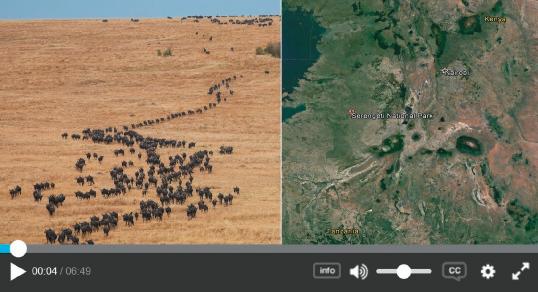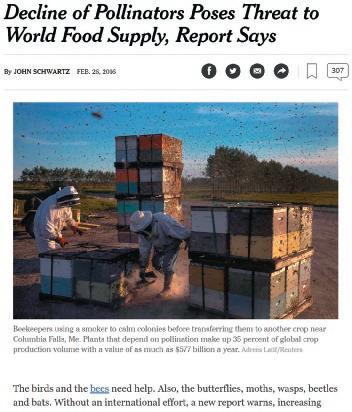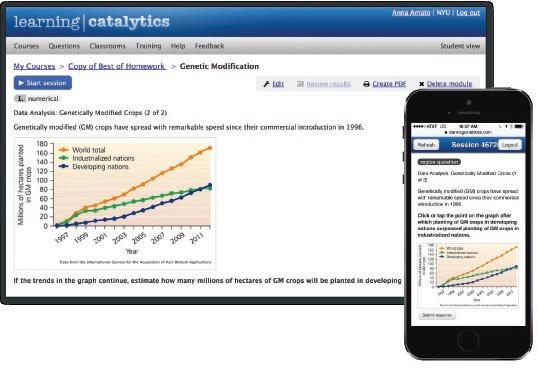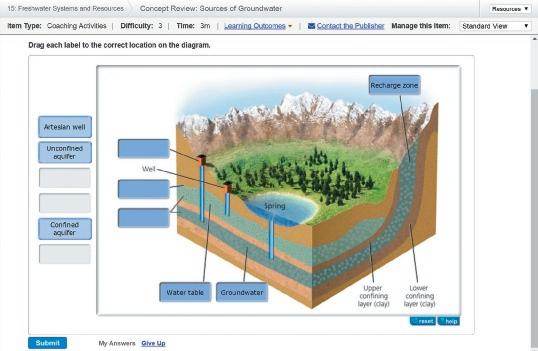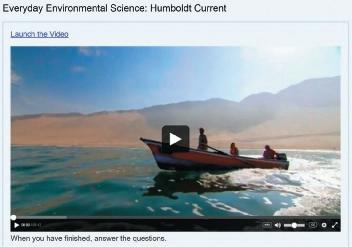Preface
Dear Student,
You are coming of age at a unique and momentous time in history. Within your lifetime, our global society must chart a promising course for a sustainable future. The stakes could not be higher.
Today we live long lives enriched with astonishing technologies, in societies more free, just, and equal than ever before. We enjoy wealth on a scale our ancestors could hardly have dreamed of. However, we have purchased these wonderful things at a steep price. By exploiting Earth’s resources and ecological services, we are depleting our planet’s ecological bank account. We are altering our planet’s land, air, water, nutrient cycles, biodiversity, and climate at dizzying speeds. More than ever before, the future of our society rests with how we treat the world around us.
Your future is being shaped by the phenomena you will learn about in your environmental science course. Environmental science gives us a big-picture understanding of the world and our place within it. Environmental science also offers hope and solutions, revealing ways to address the problems we create. Environmental science is not simply a subject you learn in college. Rather, it provides you a solid understanding of some of the most important issues of the 21st century, and it relates to everything around you over your entire lifetime.
We have written this book because today’s students will shape tomorrow’s world. At this unique moment in history, students of your generation are key to achieving a sustainable future for our civilization. The many environmental challenges that face us can seem overwhelming, but you should feel encouraged and motivated. Remember that each dilemma is also an opportunity. For every problem that human carelessness has created, human ingenuity can devise a solution. Now is the time for innovation, creativity, and the fresh perspectives that a new generation can offer. Your own ideas and energy can, and will, make a difference.
—Jay Withgott and Matthew Laposata
Dear Instructor,
You perform one of our society’s most vital functions by educating today’s students—the citizens and leaders of tomorrow—on the processes that shape the world around them, the nature of scientific inquiry, and the pressing environmental challenges facing us in our new century. We have written this book to assist you in this endeavor because we feel that the crucial role of environmental science in today’s world makes it imperative to engage, educate, and inspire a broad audience of students.
In Environment: The Science Behind the Stories, we strive to show students how science informs our efforts to create a sustainable society. We also aim to encourage critical thinking and to maintain a balanced approach as we flesh out the vibrant social debate that accompanies environmental issues. As we assess the challenges facing our civilization and our planet, we focus on providing realistic, forward-looking solutions, for we truly feel there are many reasons for optimism. In crafting the sixth edition of this text, we have incorporated the most current information from this dynamic discipline and have tailored our presentation to best promote student learning. We have examined every line of text and every figure with great care to make sure all content is accurate, clear, and up-to-date. Moreover, we have introduced a number of changes that are new to this edition.
New to This Edition
This sixth edition includes an array of revisions that enhance our content and presentation while strengthening our commitment to teach science in an engaging and accessible manner.
• central cASE St U dY Five Central Case Studies are completely new to this edition, complementing the 10 new case studies added in the fifth edition. All other case studies have been updated as needed to reflect recent developments. These updates provide fresh stories and new ways to frame emerging issues in environmental science. Students will compare organic farming with agriculture that uses genetically modified organisms, learn of the approaches California is taking to tackle chronic water shortages, examine how Miami is coping with sea level rise, and visit college campuses to see how students are promoting recycling and sustainable dining.
• Chapter 9: Farm to Table (And Back Again) at Kennesaw State University
• Chapter 10: Can Organic Farming and GMOs Coexist?
• Chapter 15: Conserving Every Drop in California
• Chapter 18: Rising Seas Threaten South Florida
• Chapter 22: A Mania for Recycling on Campus
• closing th E Loo P Also new to this edition, each chapter now concludes with a brief section that “closes the loop” by revisiting the Central Case Study while reviewing key principles from the chapter. This new Closing the Loop section enhances our long-standing and well-received approach of integrating each Central Case Study throughout its chapter.
• th E Sci E nc E behind the story Six Science Behind the Story boxes are new to this edition, expanding our library of recently added examples of this feature. These new boxes, along with others that have been updated, provide a current and exciting selection of scientific studies to highlight. Students will follow researchers as they determine whether fracking is inducing earthquakes in Oklahoma; conduct a wideranging analysis of genetically modified crops; use DNA fingerprinting to combat poaching; ascertain if endocrine-disrupting chemicals are present in bottled water; predict the future of drought in the American West; and use toxic by-products of mining to reduce water use in hydraulic fracturing.
• Chapter 2: Are the Earthquakes Rattling Oklahoma Caused by Human Activity?
• Chapter 10: What Are the Impacts of GM Crops?
• Chapter 11: Can Forensic DNA Analysis Help Save Elephants?
• Chapter 15: Are We Destined for a Future of “Megadroughts” in the United States?
• Chapter 15: Is Your Bottled Water as Safe as You Think It Is?
• Chapter 23: Can Acid Mine Drainage Reduce Fracking’s Environmental Impact?
• New and revised DATA Q, FAQ, and Weighing the Issues items Incorporating feedback from instructors across North America, we have examined each example of these three features that boost student engagement, and have revised them and added new examples as appropriate.
• End-of-chapter elements Several new approaches are introduced in our redesigned end-of-chapter material. Our Reviewing Objectives section is now more streamlined and focused on the learning objectives, and also incorporates visual icons as mileposts to help students connect to the material’s location in the chapter. New “Case Study Connection” questions encourage students to craft solutions to issues raised in the chapter’s Central Case Study.
• Currency and coverage of topical issues To live up to our book’s hard-won reputation for currency, we’ve incorporated the most recent data possible throughout,
and we’ve enhanced coverage of emerging issues. As climate change and energy concerns play ever-larger roles in today’s world, our coverage of these topics has kept pace. This edition highlights how renewable energy is growing, yet also how we continue reaching further for fossil fuels with deep offshore drilling, hydraulic fracturing for oil and shale gas, and extraction of oil sands. The text tackles the complex issue of climate change directly, while connections to this issue proliferate among topics throughout our book.
This edition also evolves and improves its coverage of a diversity of topics including the valuation of ecosystem services, invasive species and their ecological impacts, hormone-disrupting substances, fresh water shortages, advanced biofuels, plastic pollution in the oceans, sustainable agriculture, campus sustainability, green-collar jobs, and technologies that help reduce environmental impacts. We continue to use sustainability as an organizing theme throughout the book.
• Enhanced style and design We have significantly updated and improved the look and clarity of our visual presentation throughout the text. A more open layout, striking visuals, and an inviting new style all make the book more engaging for students. Over 40% of the photos, graphs, and illustrations in this edition are new or have been revised to reflect current data or for enhanced clarity or pedagogy.
Existing Features
We have also retained the major features that made the first five editions of our book unique and that are proving so successful in classrooms across North America:
• A focus on science and data analysis We have maintained and strengthened our commitment to a rigorous presentation of modern scientific research while simultaneously making science clear, accessible, and engaging to students. Explaining and illustrating the process of science remains a foundational goal of this endeavor. We also continue to provide an abundance of clearly cited, data-rich graphs, with accompanying tools for data analysis. In our text, our figures, and our online features, we aim to challenge students and to assist them with the vital skills of data analysis and interpretation.
• An emphasis on solutions For many students, today’s deluge of environmental dilemmas can lead them to believe that there is no hope or that they cannot personally make a difference in tackling these challenges. We have aimed to counter this impression by highlighting innovative solutions being developed around the world. While being careful not to paint too rosy a picture of the challenges that lie ahead, we demonstrate that there is ample reason for optimism, and we encourage action. Our campus sustainability coverage (Chapters 1 and 24, and Central Case Studies in Chapters 9 and 22) shows
students how their peers are applying principles and lessons from environmental science to forge sustainable solutions on their own campuses.
• Central Case Studies integrated throughout the text We integrate each chapter’s Central Case Study into the main text, weaving information and elaboration throughout the chapter. In this way, compelling stories about real people and real places help to teach foundational concepts by giving students a tangible framework with which to incorporate novel ideas.
• The Science Behind the Story Because we strive to engage students in the scientific process of testing and discovery, we feature The Science Behind the Story boxes in each chapter. By guiding students through key research efforts, this feature shows not merely what scientists discovered, but how they discovered it.
• These data analysis questions help students to actively engage with graphs and other datadriven figures. This feature accompanies several figures in each chapter, challenging students to practice quantitative skills of interpretation and analysis. To encourage students to test their understanding as they progress through the material, answers are provided in Appendix A. Students can practice data analysis skills further with new Interpreting Graphs and Data: DataQs in MasteringEnvironmentalScience.
• FAQ The FAQ feature highlights questions frequently posed by students in introductory environmental science courses, thereby helping to address widely held misconceptions and to fill in common conceptual gaps in knowledge. By also including questions students sometimes hesitate to ask, the FAQs show students that they are not alone in having these questions, thereby fostering a spirit of open inquiry in the classroom.
• weighing the iSSUES These questions aim to help develop the critical-thinking skills students need to navigate multifaceted issues at the juncture of science, policy, and ethics. They serve as stopping points for students to reflect on what they have read, wrestle with complex dilemmas, and engage in spirited classroom discussion.
• Diverse end-of-chapter features In addition to our new and revised end-of-chapter features detailed above, several hallmark features help students review and apply the concepts in each chapter. Reviewing Objectives summarizes each chapter’s main points and relates them to the chapter’s learning objectives, enabling students to confirm that they have understood the most crucial ideas. Testing Your Comprehension provides concise study questions on key topics, while Seeking Solutions encourages broader creative thinking that supports our emphasis on finding solutions. “Think It Through” questions in this section personalize the quest for creative solutions by placing students in a scenario and empowering them
to make decisions. Calculating Ecological Footprints enables students to quantify the impacts of their own choices and measure how individual impacts scale up to the societal level.
Other documents randomly have different content
we are to go to the Highlands to stay at a big country house belonging to his cousin.”
It was impossible to check the confidences of this small child, who, with his light brown hair, eager blue eyes and sunburnt face, was by no means the typical invalid of romance, but just a restless, high-spirited boy, brimming over with life and merriment. Perhaps it was as well that at that moment his aunt came into the room.
“So sorry to keep you waiting, Mr. Denmead,” she said, greeting him in her charming way. “I was always a sadly unpunctual mortal, but Charlie has no doubt been entertaining you. Is the carriage at the door? Then we will ring for one of the waiters, Charlie, to take you down.”
“He carries so badly,” said the small invalid, querulously. “I wish Dugald were here.”
“Well, he will come with Sir Roderick on Saturday,” said the aunt. “What does the waiter do?”
“I don’t know, but he hurts,” said Charlie, wriggling in his big chair.
“Will you let me carry you?” said Ralph.
“Yes,” said the child, with the air of a monarch bestowing a favour. “Your hands are so nice and long, not podgy little things like the waiter’s.”
The journey to the Stanhope having been safely accomplished, and the child comfortably installed in the back seat, Christine gathered up the reins, and with Ralph in the front seat beside her, drove off in the direction of Roslin.
“There is nothing I enjoy so much as driving,” she said. “It is the one real pleasure of my life.”
“Greater than such a triumph as you had last night,” said Ralph.
She glanced at him with a sort of surprise.
“Did you really think I cared for that?” she said. “How young you are—how worn and blaséeyou make me feel. I cared nothing at all
for that ovation—was thankful when the din ceased and I could go home and be quiet. When one is miserable, there is at any rate some comfort in being miserable alone—you can throw aside your smiling mask, and so get something approaching to ease. It is off now, you see, and I am treating you as if you were a trustworthy, old friend, but then you are trustworthy, I could tell that the moment I saw you. Now tell me candidly, did not Mrs. Macneillie tell you she detested me?”
“No, but I heard something of your first acquaintance with them long ago,” said Ralph; and then he coloured and hesitated, feeling that he had perhaps said too much.
And oddly enough Christine felt that he understood all, and knew that he would soon find out how, having sacrificed everything to ambition, it now profited her nothing.
“Auntie,” cried a small voice from the back seat.
She glanced round with love and tenderness in the face that a moment before had been so sad.
“What is it, darling?”
“Why those two girls were so awfully delighted to see you. I saw one catch hold of the other’s arm and say, ‘There she is!’ just as if you’d been the Queen herself.”
She laughed, but the child’s pride in her, and perhaps the remembrance that the public really loved her, touched her heart for a moment, and brought back a look of youth and gladness to her wistful eyes. She turned again to Ralph.
“Now take up our talk where it was interrupted yesterday. You were telling me what a plight you were in when Hugh Macneillie found you. How had you got into such difficulties? Couldn’t you get an engagement? Tell me your story, for we two must be friends.”
She was so simpatica that it was impossible to resist her, and Ralph told her his story; all about the old days at Whinhaven, and his father’s death; all about his adoption by Sir Matthew Mactavish
and his final dismissal; all about his search for work, his first engagement, and his experiences at Washington’s Theatre. Christine would have blamed him more for his folly. In relinquishing his position there had she not, with her womanly insight, guessed all that he left untold of his feeling for Evereld, and understood why just at Christmas time he was in such desperate haste to get on in his profession.
With the keen interest of one who had lived the same wandering life, she heard of the adventures of Skoots’ Company, and listened pityingly to the account of what Ralph called his “sixpenny tramp” through the Highlands. But when he told of the friendly shepherd who had met him in the wilds of Gaiek, she made a sudden exclamation.
“Did you say the name was Linklater? Why then I think I can help you to find the lost son—my husband’s man is named Dugald Linklater. He has been with us for a year, and would scarcely have endured it so long, I think, had he not been very fond of Charlie, and anxious too to get a good character. He had been valet to Lord Ederline, but had left him under a cloud, and had been out of a situation for a long while. My husband had had a succession of men, and really took this one in despair.”
“Then there can be no doubt about it,” said Ralph, his face lighting up. “For I know the son was Lord Ederline’s servant. This will be good news for the shepherd and his wife. How odd that one should come across him in this way. The world is but a small place after all. What is he like?”
“A dark-haired Kelt, very well-mannered, and a decidedly clever fellow. I know something of his past life, for he is going to marry my maid as soon as they have each of them saved a little money. Dugald is steady enough now, but he was nearly ruined by betting. We have very little notion, I fancy, of the sort of temptation our servants are often exposed to.”
“Will he be coming to Edinburgh? Can I see him?”
“Certainly. I expect my husband on Saturday evening. Come and call on Sunday afternoon, and I will make some excuse to send Dugald round to your rooms afterwards. Then you can tell him all about his home people. But now tell me about the rest of your journey.”
Ralph told the whole tale, and there were tears in his companion’s eyes as he described the dire struggle of the last day of his wanderings, and his final collapse in the Pass of Leny.
“And it was there Hugh Macneillie found you?” she said tremulously.
“Yes, he is fond of going up and down that path by the river, he says it is good practice to rehearse a part in that roar of many waters. I dreamt I was back again in the theatre with Evereld, then I heard footsteps, and looked up to see his face. You can’t think what a contrast it was to the faces I had seen just before in the road, with their cruel contemptuous stare; it was like looking up into the face of the Christ.”
By the time they had returned from Roslin, Christine had heard all that there was to be heard, with the exception of course of the Richmond Park incident, and she was able fully to realise the sort of life which her old lover was living. She did not presume to pity Hugh Macneillie. She knew indeed that, compared with her lot, his was one to be envied; but she felt intuitively that he would never recover from the wound she had dealt him, and knew that she had deliberately robbed him of all that a man most values. Her heart was very sore that night, and Ralph, now that he knew more of her, understood with how weary an effort she laughed and talked in the green room. He longed to be able to serve her, but there was of course little he could do, beyond showing Charlie the sort of kindness which a small boy best appreciates.
It was with some trepidation that, on the Sunday afternoon at the close of her engagement, he called to take leave of her. Other visitors were in the room. She just introduced him to Sir Roderick—a
tall, grey-haired, and decidedly good-looking man, and then left him to make his way as usual to Charlie’s couch.
The child greeted him with delight and eagerly showed him a Kodak which Christine had just given him, and with which he was longing to take snap-shots at the people in Prince’s Street. “But I mustn’t do it, Sir Roderick says, because of the fourth commandment and the Scotch being so particular. Now do you really think that the fourth commandment was meant to forbid Kodaks on Sunday?”
“Well no,” said Ralph smiling. “I don’t think it has much to do with photography or with our Sunday.”
“And you see,” continued the child eagerly, “even if we are not to do any manner of work and of course, every one really does a good deal—you can’t possibly call it work to take a snap-shot. Why it says, you know, in the advertisement, that it’s no labour at all. ‘You press the button, we do all the rest,’ and one wouldn’t ask them to do the developing to-day. It’s really not so bad as Sir Roderick’s ringing the bell as he’s doing now, for when he rings twice like that, Dugald has to come hurrying upstairs like lightning, and I know he has had hardly any time for his dinner.”
At that moment the servant entered in response to his master’s peremptory summons. Ralph watched him keenly, and had no manner of doubt that this man was the shepherd’s son, for the likeness to Angus Linklater was marked. An expressive little bit of pantomime followed; he could not hear the actual words spoken by Sir Roderick, but the insufferable tone and manner of the master and the expression of long-enduring but sorely tried patience on the face of the man, were quite sufficient to reveal much of their characters. Soon after this the visitors rose to go, and Sir Roderick having taken leave of them in a pleasant and courteous fashion, turned round on his wife the moment the door was closed, and apparently forgetting that they were not alone, hurled at her a torrent of abuse and scathing sarcasm, which made Ralph long to kick him down-stairs. It seemed to be about some salmon flies
which had been left behind in London, Dugald having failed to find them in their right place, and imagining that they had been sent by his master with the first instalment of luggage brought to Edinburgh by the rest of the family some weeks ago.
In Lady Fenchurch’s manner of receiving her husband’s anger there was the calmness of long use, but her colour rose a little because of the injustice of the attack, and from a sort of shame that Ralph Denmead should witness the scene.
“I am sorry the mistake was made, but you forget we are not alone,” she said, seizing on a moment when for want of breath he ceased to swear.
He glanced towards the window with annoyance, and with a malice which his hearers perfectly understood, suddenly changed his line.
“Well, if it is not your fault then it must be Dugald’s fault. The d ———d scoundrel shall leave the very day. I can get another man. I’m sick of the sight of him. He shall see that I’m not to be imposed upon by an idle fellow who doesn’t know his duties. He shall go, and with the worst character I ever gave to a servant. He came to me with a bad one, and I’ll add a telling bit to it.”
“I only wonder he has endured the situation so long.” said Christine, stung by the unfairness of this retaliation. “But you punish yourself more than you punish him; think what trouble you had before he came. The best servants must now and then make mistakes.”
“The best mistresses are supposed to look to the ways of their household,” he said maliciously, “and to have some regard for their husbands’ comfort. D——— you, say no more. I tell you the man shall go, and if he chooses to bring an action against me for giving him a worse character than he brought with him, I’ll show up his whole past life.”
With that he sauntered out of the room and Ralph, with some presence of mind, picked up the Kodak and began to talk to Charlie
about the best position for taking a photograph of the Scott memorial just opposite. In a few minutes Christine slowly crossed the room and sat down in a low chair beside Charlie’s couch. Her white taper fingers played with the child’s light hair, but she was quite silent, sitting there listlessly, with the exhausted look which people wear when they have been battling with a strong wind.
“And she might have been Macneillie’s wife!” thought Ralph. “How can she endure this wretched existence!”
He was made so miserable by the sight of that worst tragedy of life—a mistaken marriage—and by the thought of the grievous pain and sorrow it had entailed, that he was quite unable to perceive how immensely both Christine and Macneillie had been developed by the consequences of that very mistake.
The woman who at seven-and-twenty had sacrificed the entire happiness of another to her own ambition and the worldly arguments of her parents, who had allowed the love in her heart to grow weak for lack of nourishment, who had been capable of utterly deceiving herself and stifling her conscience, had at four-and-thirty grown clear-eyed and humble through much sorrow. And as for Macneillie, his years had been spent to such good purpose that no one with deep insight could have wished that he had married Christine Greville as she had been seven years ago. There had, perhaps, been truth in her assertion in St. James’s Park—she might have dragged him down to a lower level. Undoubtedly, apart, they had each of them climbed a step higher, and she was more worthy of him now than in the old days.
“Auntie,” said the child, breaking the silence at last, “you won’t really let Dugald go, will you?”
She sighed.
“Not if I can help it, dear, but of course he is Sir Roderick’s servant. Say no more about it, though. I know you are fond of him and would be sorry to lose him, but we can’t always have what we like.”
“I should have thought you might,” said the child. “You who earn such lots of money. Can’tyou have all you like?”
She laughed, but there were tears in her eyes.
“I can have you, dear, and you are my chief pleasure now,” she said caressingly. Then, shaking off her cares for awhile, she began to talk to Ralph, who at the end of the call felt more ready than ever to be her devoted servant for the rest of his life.
“How Evereld will like to hear all about her,” he reflected as he went down the stairs, “there will be no end to tell her next time we meet.”
He was unpleasantly roused from these reflections by encountering on the staircase Sir Roderick Fenchurch, who paused to shake hands with him in the most courteous and pleasant way imaginable, as though he had utterly forgotten that Ralph had been a witness of the stormy scene in the private sitting-room. As a matter of fact, it was so entirely his custom to abuse and swear at his wife before the child, before the servants, and before any one staying in the house, that he never for a moment imagined that this young actor would have liked to horse-whip him for daring so to treat a woman.
All the world seemed out of joint to Ralph as he walked away from the hotel through the beautiful city whose noble buildings and grand situation made such an incongruously fair setting to the sad picture he had just looked on. He chafed bitterly against the thought of such a man as Sir Roderick ruining the happiness of his hero Macneillie, and went back to his rooms with a heart full of indignation to write the letter he felt bound to send to Callander after meeting Christine Greville. Having written sundry details as to the play they had been giving during the week, he turned to the subject which he knew would interest Macneillie.
“Miss Greville has been staying at the Windsor Hotel with her small nephew, a boy of nine, to whom she is devoted. I have been there several times, as the child took a fancy to me. He is lame, but
likely they say to recover, and it is wonderful to see her care of him. Two or three times we went out driving together. She spoke much of you and of the old days. She looks as young as ever on the stage, but off it her face is careworn and awfully sad. To-day, when I went to take leave of her, Sir Roderick Fenchurch was there. He was decent enough till the other visitors were gone, but then fell into a rage with her about some salmon flies that had been forgotten; he has a tongue that cuts like a sharp razor; there’s not a pin to choose between him and the ordinary, wife-beating ‘pleb,’—in fact, I prefer the latter, for at any rate he can be properly punished, while this polished scoundrel with his sarcasms and his cruelties of the tongue can’t be touched. She was very quiet and dignified all through this scene, but when at last he went out she looked dead tired; this sort of thing at home, and the hard work of professional life, must be more than any one could stand for long, I should think. An odd thing has happened. I have found the son of Linklater, the shepherd who housed me so kindly in the Gaick Forest. He is now Sir Roderick Fenchurch’s man, but will not be with him much longer as the brute has given him warning—chiefly to annoy his wife I believe. Dugald Linklater has just been in to see me, and I told him I had been to his home, and that they were always looking for him to come back. He promises to write to his father at once. So there is one pleasant thing in this day, which Sir Roderick Fenchurch has overclouded. What can be the purpose in creation of such brutes? They are enough to have staggered even your prophet Erskine of Linlathen.”
CHAPTER XIX
“Nothing mars or misleads the influence that issues from a pure and humble and unselfish character . A man’s gifts may lack opportunity, hisefforts may bemisunderstoodandresisted;butthe spiritualpower of a consecrated will needs no opportunity and can enterwherethedoorsareshut.”—Dean Paget.
Macneillie read and re-read this letter with the awful craving of a man whose love has for years been starved of all knowledge of the beloved, except the mere knowledge that she was still in the world. He had, of course, seen her name daily in the papers, and had known what plays she was acting in, but of her real life he had known nothing. He had tried to think that her marriage though necessarily falling below his ideal of married life might at any rate be as happy as the average, might at least be tranquil and not without a certain comfortable respectability. But the brief account given in Ralph’s letter, and the many details which he could so easily read between the lines—filled him with misery. The post had brought him as usual a mass of correspondence; with a sigh of impatience he ran through it, then pushing it aside caught up his hat and hurriedly left the house. He was in no humour to climb the hill-side to the wishing-well; instead, he passed through the village, over Callander Bridge, and taking a little footpath across the meadows, sought out a favourite nook of his beside the river Teith, which wound its peaceful course through the hayfields. A tiny wood had sprung up near this walk at one part, and Macneillie had a special affection for a certain beech-tree which stood just at a bend in the river, and under its shade many of his pleasantest holiday hours were spent. He threw himself down now on the sloping bank beneath it. Everything was curiously still and peaceful; Ben Ledi rose majestically in the distance, framed by soft foliage in the foreground, and the river was emphatically one of those which “glideth at his
own sweet will,” a great contrast to the Leny, which dashed and foamed through its rocky pass. It was just this calm peacefulness he longed for in his inward struggle. With all the vividness of one blessed or cursed with a powerful imagination, he realised Christine as she now was. He knew instinctively that her heart had awakened from its sleep, that, with the dead failure of the mariage de convenance, her love which had only lain dormant had returned— but had returned of course to torture her. Hitherto he had been able to think of Sir Roderick Fenchurch with a sort of impartiality. He knew so very little about him; and it was Macneillie’s nature to think well of people until they disillusioned him; he had even felt a sort of compassion for the man, because he knew that he could never really possess Christine’s heart as he, for a time at any rate, had possessed it. But Ralph’s picture of what the husband really was behind his society mask had driven out all gentler thoughts, had filled the Scotsman’s heart with loathing, had over-clouded his whole world.
Macneillie was, however, before all things, an honest man. He had not accepted conventionally the first religious truths put before him, he had thought much, he had waited patiently, had learnt by degrees, and the hard training of his life had borne its fruit—it was impossible now, that he should remain for long in darkness. It flashed upon him that his trouble came from having stepped out of the right order; for a time he had lost that absolute trust in God’s education of every human being, which had for many years been his stronghold. The words of Ralph’s letter came back to him—“brutes like Sir Roderick are enough to have staggered even your prophet Erskine of Linlathen.”
The name of Thomas Erskine in itself awakened within him a whole train of memories, for he was one of the many thousands who have been rescued by the writings of that barrister, laird and saint from falling a prey to the spirit of unbelief which is the reaction alike from Calvinism and ceremonialism.
Lying under the shade of the beech-tree, the fresh air from the hills playing softly about his uncovered head, he tried to picture to
himself what Erskine would have thought of this mistaken marriage, with its unhappy results, and there came back to his mind a passage in “The Spiritual Order,” in which the writer spoke of the strange difficulty of retaining faith in God’s loving purpose when confronted with the evils of the lanes and closes of great towns which seem to be mere hot-beds of vice and profligacy. How look on those and still believe that education was God’s whole purpose in creation? “It would be impossible,” said Erskine, “did we not also realise that thereisnohastewithGod.”
Clearly then it was the imperfection of his own nature, the weakness—not the strength—of his love for Christine, which made him so desperately impatient at the thought of her suffering; for her sake he must learn to be “strong and patient,” learn to love with a diviner love, to wait with a more perfect trust. The letter had come to him like a call to arms, he was perfectly conscious that it marked a fresh turning-point in his life; he had learnt more of Christine and her difficulties than he had known for years, and the only way in which he could interpret the meaning of it all was that he should pray for her in her grievous need more unceasingly than he had yet done.
And so the time passed by, and at the close of the six weeks’ engagement Ralph returned to Callander for the few days that remained before Macneillie’s company was to open at Southbourne with “The Winter’s Tale.”
It felt more like a home-coming than he could have imagined possible. His friend was delighted to have him back again; old Mrs. Macneillie was scarcely less so, and the servants gave him a cordial welcome, for though his illness had given a good deal of trouble in the house, he had the gift of winning hearts, and the forlorn plight in which he had first arrived had awakened all the best sympathies of the hospitable Scottish household. He fancied that Macneillie’s deepset grey eyes were somewhat graver in expression than before, but his manner, with its touch of quaint, dry humour, was exactly the same as usual, and it was not until the Tuesday morning when they
set off early to walk together to the Trossachs, that any allusion was made to the contents of the letter. Then, at last, as they walked along the shores of Loch Vennachar, Macneillie put a direct question about Christine.
“I am glad you got to know Lady Fenchurch,” he said. “Where did she go after leaving Edinburgh?”
“She went up to the Highlands a fortnight ago to a place called Mearn Castle, which belongs to a Mrs. Strathavon-Haigh, a widowed cousin of Sir Roderick’s—a very fast widow, if what I heard in Edinburgh is true. Lady Fenchurch did not want to go there, but said her husband particularly wished her to accept the invitation. So she had given up her original plan of taking Charlie to the sea, and hoped the Highland air would do him as much good.”
“I suppose she was right to try to please her husband,” said Macneillie, “but Mearn Castle is one of the most abominable country houses going.”
“She seemed to know very little about it,” replied Ralph, “only disliked this gay widow, and wanted to go to some quiet place where rest would have been more possible. But she evidently tries to do what can be done for her brute of a husband. Oh! if you could have seen her patience, her dignity, while that scoundrel was abusing her! I wish I could horse-whip him!”
“No need,” said Macneillie, in a low voice, “for every brutal word he will one day have to give account.” Something in his manner, with its deep conviction that every wrong should in the future be righteously avenged, silenced Ralph. He felt ashamed of his vehement impatience, and was not sorry that, as they approached Loch Achray, Macneillie led away from the subject by asking after the shepherd’s son.
They had passed the Hotel, and were walking through the Trossachs, when they overtook a gentleman’s servant laden with a soda-water syphon and a great basket of fruit which he was evidently carrying down to Loch Katrine.
Glancing at the man, Ralph gave an exclamation of astonishment.
“Why, Linklater! is it you? I was speaking to Mr. Macneillie about you only just now.”
The man’s face lighted up as he returned Ralph’s cordial greeting, and he looked searchingly at Macneillie, having very often heard that the actor was one of Lady Fenchurch’s oldest friends.
“I little thought to see you here, sir,” he said, turning to Ralph. “We came this morning from Stronachlachar, for there was a good wind for sailing, and Master Charlie was wanting to set foot on Ellen’s Isle. He’s there now, with her ladyship, and I came on to the Hotel to get these things for lunch.”
“They have left Mearn Castle then?” said Ralph in surprise.
“Well, sir,” said Linklater, with a little hesitation in his manner, “if you’ve not already heard, maybe I had better tell you the whole truth, for all the world must know it as soon as her ladyship sues for a divorce.”
Macneillie made an inarticulate exclamation. Like one in a dream he listened to the man’s brief account. It appeared that Sir Roderick had seduced the young wife of one of the game-keepers on the Castle estate—that the enraged husband discovering him had given him such a castigation that it had been impossible to hush up the affair, and that Lady Fenchurch, on learning the truth, had left Mearn Castle.
There was a pause when the man had ended. Ralph waited for his companion to ask some question, to make some comment, but Macneillie walked on in absolute silence, evidently too deeply engrossed in his own reflections to be even conscious that he was not alone.
This, then, was the meaning of his inward perception of Christine’s grievous need! In this fortnight, during which his whole soul had been absorbed in prayer for her, she had lived through the most awful crisis of her life, and now she was near to him in her forlorn,
unprotected, worse than widowed condition. He must at any rate, inquire if she would see him, ask if he could in any way help her, and here in this quiet spot there was fortunately no danger that idle talkers would comment on their meeting. He pencilled a few words in German on one of his cards and turned to Linklater.
“Give this to your mistress,” he said, the title somehow sticking in his throat. “I will take a boat and row out to the island in a few minutes, and you can bring back the answer.”
By this time they had walked through the glen and had reached the picturesque landing-place. Linklater hailed the Stronachlachar boatman, and set off for the island, and the others followed more leisurely, Ralph taking both oars and Macneillie sitting in the stern, though the far-away look in his eyes scarcely qualified him for the duties of steersman.
The story which Linklater had told them had been so entirely unexpected, and was in itself so revolting, that neither of them felt inclined to talk. To Macneillie, moreover, it was as though he had suddenly heard of the death of the man who had saddened his life; to all intents and purposes he considered Sir Roderick as dead to Christine, for he came of a race which for more than three hundred years has always regarded adultery as the dissolution of a marriage. To him there had never been the least question as to the distinct teaching of Christ on this point, he believed that His words clearly sanctioned divorce for infidelity to the marriage bond and gave freedom to the innocent one. No man could rightly put asunder those who were married; sin only or death could part them. But proved infidelity was as truly the divider as love was the bond of union; the legal ceremonies, whether of marriage or of divorce, were but the appointed and expedient symbols of spiritual facts—the outward signs of the birth and death of married life.
The seven years of his solitude had taught Macneillie a stern selfcontrol, and whatever he felt as they rowed across the lake was not allowed to appear at all in his face. Ralph glanced at him from time to time and marvelled, perhaps only now realising of what splendid
stuff his hero was made, and how nobly he held in check that difficult temperament with which actors, artists and musicians are usually endowed.
“Which side is the best landing-place?” he asked as they drew near to the lovely wooded island.
“To the right in that bit of a creek,” said Macneillie, beginning to pay heed to the steering. “There is the boat, I see, but the men are both out of it.”
As he spoke they glided into the little, rocky cleft with its overhanging trees, its moss-grown boulders, its patches of crimson heather and purple ling. Then came a few minutes of utter silence, as they waited for Linklater’s return; Ralph felt anxious and restless, each minute seemed to him an hour, and he feared that perhaps after all Christine Greville would refuse to see any one. As for Macneillie he just waited like one who is intently listening, but Ralph was not sure that the listening was for Christine’s voice or for the servant’s approaching footsteps, he had a suspicion that it was for something much more inward.
At length, to his great relief, there came a rustling among the boughs and a trampling of feet, and in a minute Linklater was striding down over the rocks towards the boat, bearing a note in his hand. Macneillie thanked him as he took the missive, and unfolding it less deftly than might have been expected of a seasoned actor, read the following words:
“You are the only man I could bear to speak to yet; please come.”
He promptly stepped on shore, but Ralph lingered.
“I will stay in the boat,” he suggested, “and have a pipe.”
“Master Charlie is very anxious you should come and help him with his Kodak, sir,” said Linklater, respectfully. “He’s just up here at the top, and her ladyship is at the further side of the island, sketching.”

